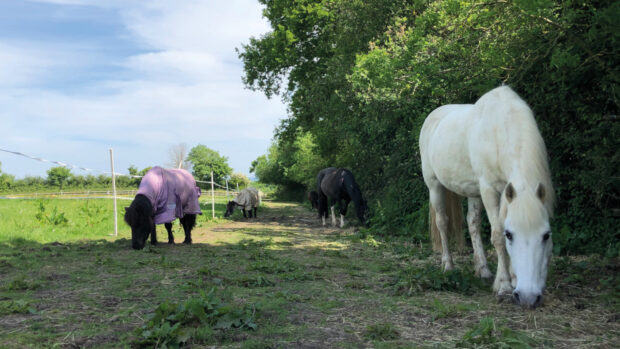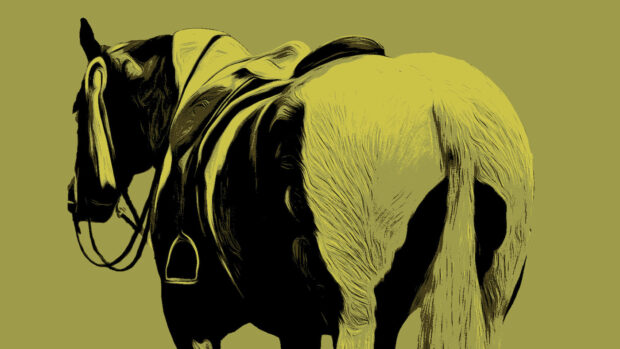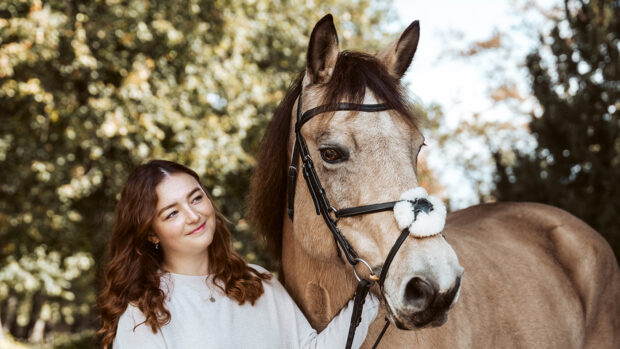Q: I recently heard about two brothers who were prosecuted for causing unnecessary suffering to their Labrador by overfeeding it to the point where it became obese. Was this prosecution under the new Animal Welfare Act and does it mean owners of seriously overweight horses could be prosecuted?
THE prosecution of Derek and David Benton in March 2006 was brought under existing legislation; the Animal Welfare Act does not come into force until 6 April.
“The RSPCA took action in this case because [their dog] Rusty’s condition was so extreme — and this case arose because of the failure of the Bentons to follow their own vet’s advice. An independent vet said the dog was so obese when removed from the brothers that it was effectively crippled,” says an RSPCA spokeswoman.
“While in RSPCA care, Rust gradually lost weight on a controlled diet under veterinary supervision and was recently handed back to his owners.
“It is always difficult when RSPCA inspectors have to hand animals back to owners who have had a conviction. But we have demonstrated that this dog can lose weight — Rusty is now on the road to recovery and his quality of life has improved dramatically as a result.”
According to solicitor Stuart Farr, of Laytons: “It was made expressly clear by the RSPCA that this was not a ‘test case’ in the sense that the result might then open the floodgates to a number of other similar prosecutions. Indeed, the case was peculiar to its facts because the RSPCA alleged that the Labrador’s owners had wilfully and knowingly harmed the dog by overfeeding it, having previously ignored strong advice to place it on a diet. In continuing to ignore advice, the RSPCA alleged that the owners had been ‘deliberately negligent’.
“Causing ‘unnecessary suffering’ to an animal can manifest itself in a multitude of guises, and the aim of the Animal Welfare Act is to provide greater flexibility in its approach to the subject. It has also created a positive legal duty on people responsible for animals to ensure their welfare.
“Section 4 of the new law makes it an offence for anyone to cause unnecessary suffering to an animal. An animal in this context includes any that is commonly domesticated or is otherwise under the permanent or temporary control of man, so it will apply to horses, as well as dogs, cats and other pets.
“In addition, a person can be found guilty under the Act if he/she does not take such steps as are reasonable in all the circumstances to ensure that the needs of an animal for which he/she is responsible are met to the extent required by ‘good practice’, a concept that may be open to scrutiny and much interpretation in the future.
“An animal’s ‘needs’ in this context include a suitable environment and diet, housing/shelter and protection from pain and suffering.
“Only time will tell if the cases that come before the courts under the new Act will involve allegations of suffering that are less or more extreme than those being brought at present. However, horse owners should not assume they will be immune from prosecution under any circumstance under the new law. The vast majority who act responsibly and humanely towards their animals will have nothing to fear. The tiny majority who deliberately cause extreme and unnecessary suffering to their animals should now appreciate the greater risk of prosecution,” concludes Stuart.
Information
For equine legal advice, call Stuart Farr at Laytons Solicitors
Tel: 0161 834 2100 www.laytons.com
This Q&A was first published in Horse & Hound (15 February, ’07)


